Sleep Deprivation Influences Trial-to-Trial Transfer but Not Task Performance
(This article belongs to the Section Mental Health)
Abstract
1. Introduction
2. Experiments 1A and 1B
2.1. Participants
2.2. Apparatus and Procedure
2.3. Results
3. Experiments 2A and 2B
3.1. Participants
3.2. Apparatus and Procedure
3.3. Results
4. Discussion
Author Contributions
Funding
Institutional Review Board Statement
Conflicts of Interest
References
- Kanas, N.; Manzey, D. Space Psychology and Psychiatry; Springer: Dordrecht, The Netherlands, 2008; Volume 16. [Google Scholar]
- Pollicina, I.; Maniaci, A.; Lechien, J.R.; Iannella, G.; Vicini, C.; Cammaroto, G.; Cannavicci, A.; Magliulo, G.; Pace, A.; Cocuzza, S. Neurocognitive performance improvement after obstructive sleep apnea treatment: State of the art. Behav. Sci. 2021, 11, 180. [Google Scholar] [CrossRef] [PubMed]
- Killgore, W.D. Effects of sleep deprivation on cognition. Prog. Brain Res. 2010, 185, 105–129. [Google Scholar] [PubMed]
- Tomaso, C.C.; Johnson, A.B.; Nelson, T.D. The effect of sleep deprivation and restriction on mood, emotion, and emotion regulation: Three meta-analyses in one. Sleep 2020, 44, zsaa289. [Google Scholar] [CrossRef]
- Pilcher, J.J.; Huffcutt, A.I. Effects of Sleep Deprivation on Performance: A Meta-Analysis. Sleep 1996, 19, 318–326. [Google Scholar] [CrossRef]
- Zohar, D.; Tzischinsky, O.; Epstein, R.; Lavie, P. The Effects of Sleep Loss on Medical Residents’ Emotional Reactions to Work Events: A Cognitive-Energy Model. Sleep 2005, 28, 47–54. [Google Scholar] [CrossRef]
- Christensen, J.M.; Talbot, J.M. A review of the psychological aspects of space flight. Aviat. Space Environ. Med. 1986, 57, 203–212. [Google Scholar] [PubMed]
- Kang, G.E.; Gross, M.M. The effect of emotion on movement smoothness during gait in healthy young adults. J. Biomech. 2016, 49, 4022–4027. [Google Scholar] [CrossRef] [PubMed]
- Vaz, D.V.; Avelar, B.S.; Resende, R.A. Effects of attentional focus on movement coordination complexity. Hum. Mov. Sci. 2019, 64, 171–180. [Google Scholar] [CrossRef] [PubMed]
- Hilde, K.; Femke, V.A.; Sanne, V.; Sandra, V.C.; Bert, S. Motor learning and movement automatization in typically developing children: The role of instructions with an external or internal focus of attention. Human Movement Science 2018, 60, 183–190. [Google Scholar]
- Abswoude, F.V.; Buszard, T.; Kamp, J.V.D.; Steenbergen, B. The role of working memory capacity in implicit and explicit sequence learning of children: Differentiating movement speed and accuracy. Hum. Mov. Sci. 2020, 69, 102556. [Google Scholar] [CrossRef]
- Daviaux, Y.; Mignardot, J.-B.; Cornu, C.; Deschamps, T. Effects of total sleep deprivation on the perception of action capabilities. Exp. Brain Res. 2014, 232, 2243–2253. [Google Scholar] [CrossRef] [PubMed]
- Hennecke, E.; Lange, D.; Steenbergen, F.; Fronczek-Poncelet, J.; Elmenhorst, D.; Bauer, A.; Aeschbach, D.; Elmenhorst, E.-M. Adverse interaction effects of chronic and acute sleep deficits on spatial working memory but not on verbal working memory or declarative memory. J. Sleep Res. 2020, 30, e13225. [Google Scholar] [CrossRef] [PubMed]
- Geiger-Brown, J.; Rogers, V.; Trinkoff, A.M.; Kane, R.L.; Bausell, R.B.; Scharf, S.M. Sleep, Sleepiness, Fatigue, and Performance of 12-Hour-Shift Nurses. Chrono-Int. 2012, 29, 211–219. [Google Scholar] [CrossRef] [PubMed]
- Bratzke, D.; Steinborn, M.B.; Rolke, B.; Ulrich, R. Effects of Sleep Loss and Circadian Rhythm on Executive Inhibitory Control in the Stroop and Simon Tasks. Chrono-Int. 2012, 29, 55–61. [Google Scholar] [CrossRef]
- Fournier, L.R.; Hansen, D.A.; Stubblefield, A.M.; Van Dongen, H.P.A. Action plan interrupted: Resolution of proactive interference while coordinating execution of multiple action plans during sleep deprivation. Psychol. Res. 2020, 84, 454–467. [Google Scholar] [CrossRef]
- Dinges, D.F.; Pack, F.; Williams, K.; Gillen, K.A.; Powell, J.W.; Ott, G.E.; Aptowicz, C.; Pack, A.I. Cumulative Sleepiness, Mood Disturbance, and Psychomotor Vigilance Performance Decrements During a Week of Sleep Restricted to 4–5 Hours per Night. Sleep 1997, 20, 267–277. [Google Scholar]
- Fitts, P.M. The information capacity of the human motor system in controlling the amplitude of movement. J. Exp. Psychol. 1954, 47, 381–391. [Google Scholar] [CrossRef]
- Radwin, R.G.; Vanderheiden, G.C.; Lin, M.-L. A Method for Evaluating Head-Controlled Computer Input Devices Using Fitts’ Law. Hum. Factors: J. Hum. Factors Ergon. Soc. 1990, 32, 423–438. [Google Scholar] [CrossRef]
- Whitwell, R.L.; Lambert, L.M.; Goodale, M.A. Grasping future events: Explicit knowledge of the availability of visual feedback fails to reliably influence prehension. Exp. Brain Res. 2008, 188, 603–611. [Google Scholar] [CrossRef]
- Tang, R.; Shen, B.; Sang, Z.; Song, A.; Goodale, M.A. Fitts’ Law is modulated by movement history. Psychon. Bull. Rev. 2018, 25, 1833–1839. [Google Scholar] [CrossRef]
- Tang, R.; Whitwell, R.L.; Goodale, M.A. The influence of visual feedback from the recent past on the programming of grip aperture is grasp-specific, shared between hands, and mediated by sensorimotor memory not task set. Cognition 2015, 138, 49–63. [Google Scholar] [CrossRef] [PubMed]
- Shen, B.; Liu, Q.; Song, A.; Wang, X.; Tang, R. How long is the interval over which trial-to-trial effects on Fitts’ Law task can operate? Exp. Brain Res. 2020, 238, 851–859. [Google Scholar] [CrossRef] [PubMed]
- Watson, D.; Clark, L.A.; Tellegen, A. Development and validation of brief measures of positive and negative affect: The PANAS scales. J. Pers. Soc. Psychol. 1988, 54, 1063–1070. [Google Scholar] [CrossRef]
- Derrick, B.; Toher, D.; White, P. Why Welch’s test is Type I error robust. Quant. Methods Psychol. 2016, 12, 30–38. [Google Scholar] [CrossRef]
- Ruxton, G.D. The unequal variance t-test is an underused alternative to Student’s t-test and the Mann–Whitney U test. Behav. Ecol. 2006, 17, 688–690. [Google Scholar] [CrossRef]
- Feyer, W. Moderate sleep deprivation produces impairments in cognitive and motor performance equivalent to legally prescribed levels of alcohol intoxication. Occup. Environ. Med. 2000, 57, 649–655. [Google Scholar]
- Ghanbari, I.; Taheri, H.R.; Sohrabi, M. The Effects of 24-Hour Sleep Deprivation on Cognitive and Motor Skills of Male College Students. Ann. Appl. Sport Sci. 2019, 7, 27–38. [Google Scholar] [CrossRef]
- Drummond, S.P.A.; Anderson, D.E.; Straus, L.D.; Vogel, E.K.; Perez, V.B. The Effects of Two Types of Sleep Deprivation on Visual Working Memory Capacity and Filtering Efficiency. PLoS ONE 2012, 7, e35653. [Google Scholar] [CrossRef]
- Dohrmann, S.B.; Leppin, A. Determinants of seafarers’ fatigue: A systematic review and quality assessment. Int. Arch. Occup. Environ. Health 2016, 90, 13–37. [Google Scholar] [CrossRef]
- Allen, P.; Wadsworth, E.; Smith, A. Seafarers’ fatigue: A review of the recent literature. Int. Marit. Health 2008, 59, 81. [Google Scholar]
- Beatty, G.F.; Cranley, N.M.; Carnaby, G.; Janelle, C.M. Emotions predictably modify response times in the initiation of human motor actions: A meta-analytic review. Emotion 2016, 16, 237–251. [Google Scholar] [CrossRef] [PubMed]
- Simoes Matos Saraiva, A.C. Motion and Emotion: How Emotional Stimuli Influence the Motor System. Ph.D. Thesis, University College London, London, UK, 2017. [Google Scholar]
- Schoofs, D.; Preuß, D.; Wolf, O.T. Psychosocial stress induces working memory impairments in an n-back paradigm. Psychoneuroendocrinology 2008, 33, 643–653. [Google Scholar] [CrossRef] [PubMed]
- Luethi, M.; Meier, B.; Sandi, C. Stress effects on working memory, explicit memory, and implicit memory for neutral and emotional stimuli in healthy men. Front. Behav. Neurosci. 2009, 2, 5. [Google Scholar] [CrossRef] [PubMed]
- Eysenck, M.W.; Calvo, M. Anxiety and Performance: The Processing Efficiency Theory. Cogn. Emot. 1992, 6, 409–434. [Google Scholar] [CrossRef]
- Frenda, S.J.; Fenn, K.M. Sleep less, think worse: The effect of sleep deprivation on working memory. J. Appl. Res. Mem. Cogn. 2016, 5, 463–469. [Google Scholar] [CrossRef]
- Smith, C.D.; Cooper, A.D.; Merullo, D.J.; Cohen, B.S.; Heaton, K.J.; Claro, P.J.; Smith, T. Sleep restriction and cognitive load affect performance on a simulated marksmanship task. J. Sleep Res. 2019, 28, e12637. [Google Scholar] [CrossRef]
- Jasper, I.; Häusler, A.; Baur, B.; Marquardt, C.; Hermsdörfer, J. Circadian Variations in the Kinematics of Handwriting and Grip Strength. Chrono- Int. 2009, 26, 576–594. [Google Scholar] [CrossRef]
- Moore, S.; Dilda, V.; Morris, T.; Yungher, D.; MacDougall, H.; Wood, S. Long-duration spaceflight adversely affects post-landing operator proficiency (Version 1). Sci. Rep. 2019, 9, 2677. [Google Scholar] [CrossRef]

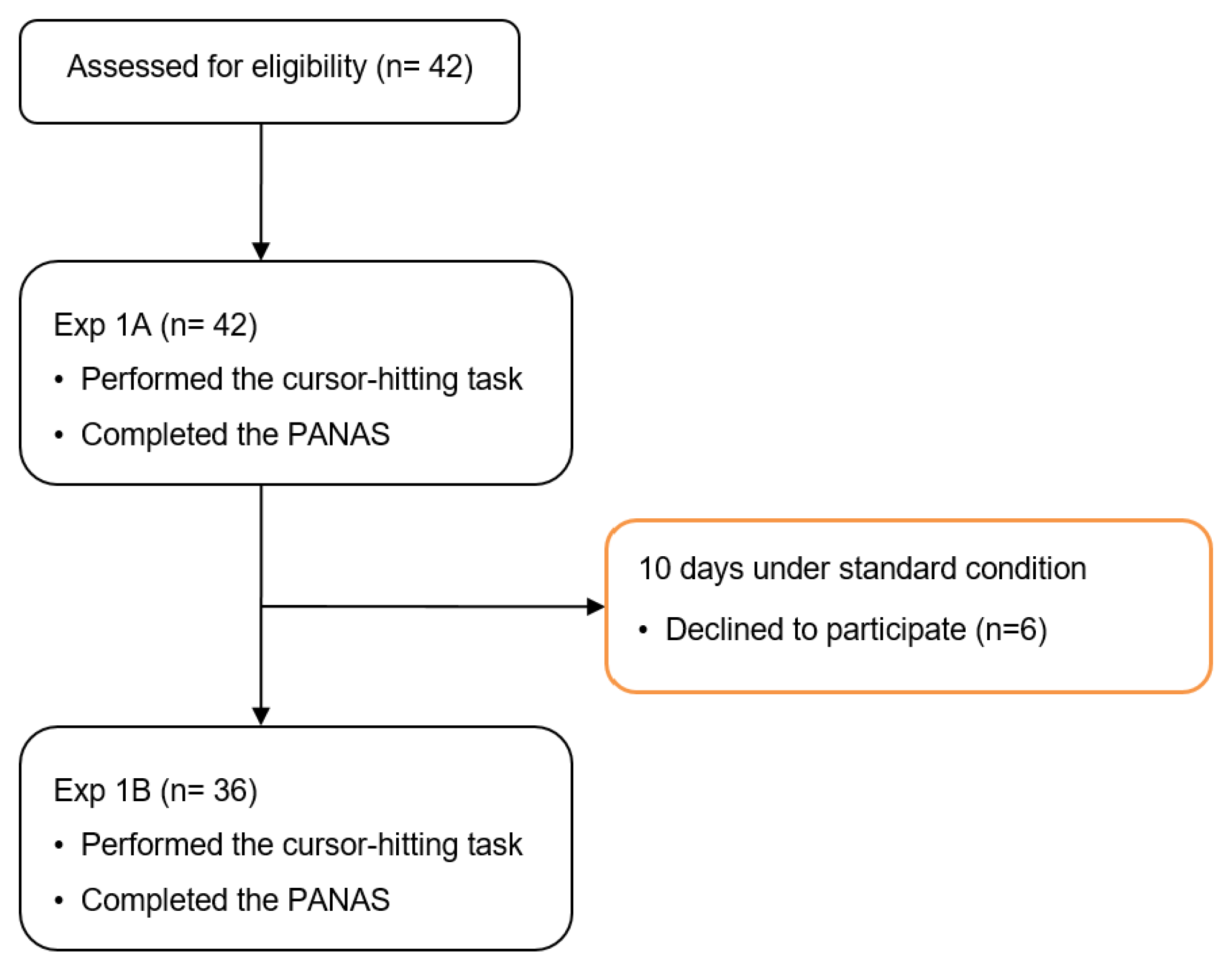
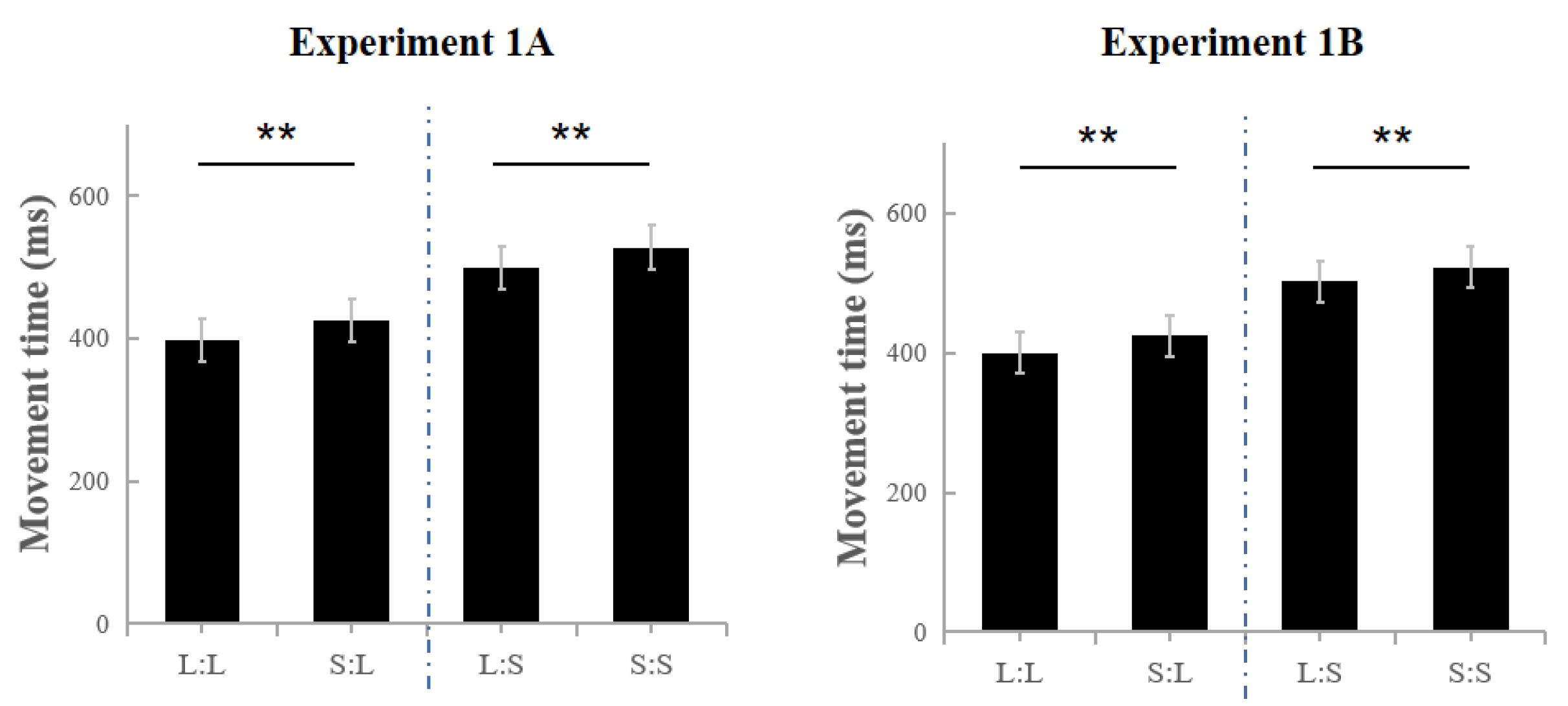
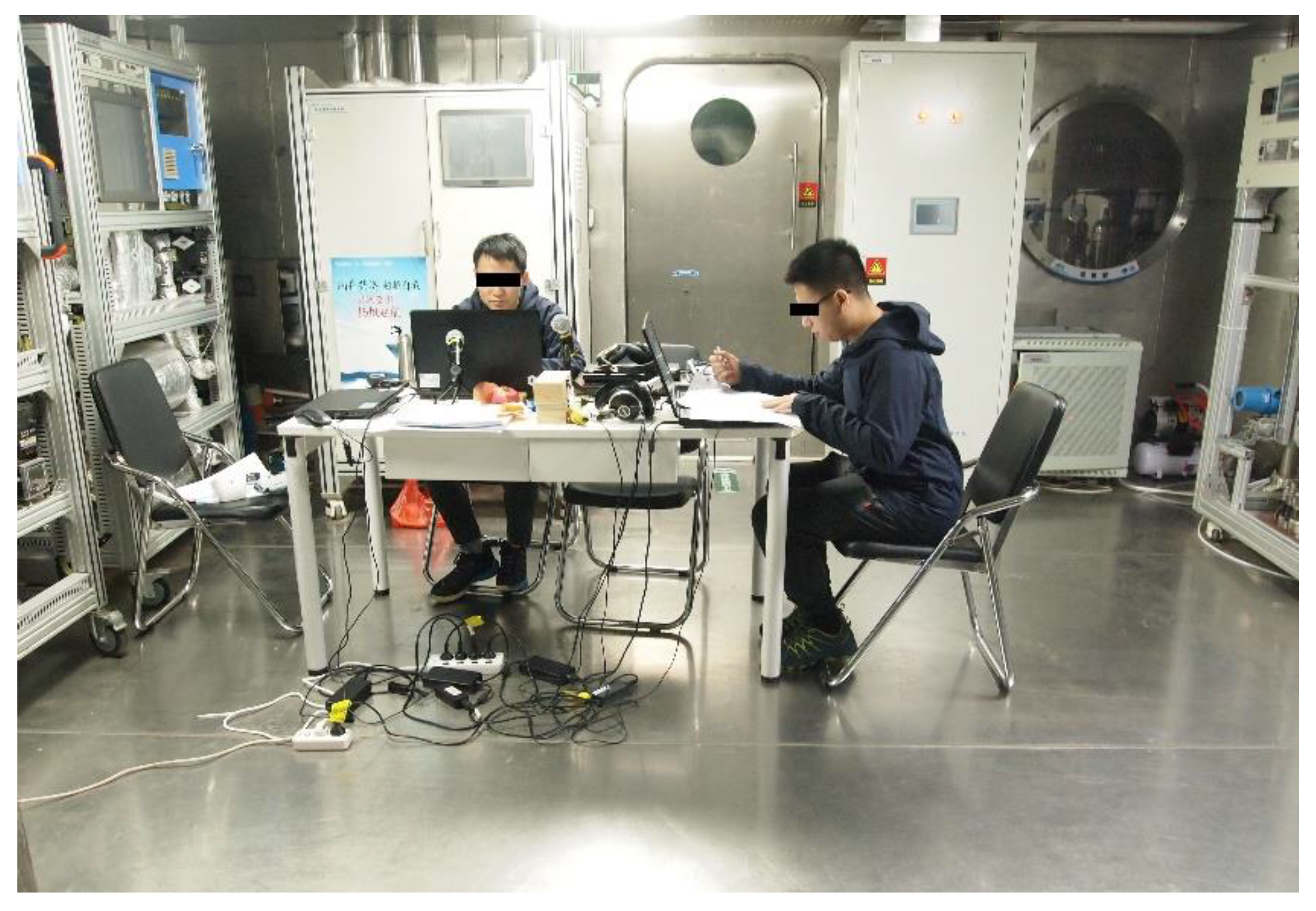
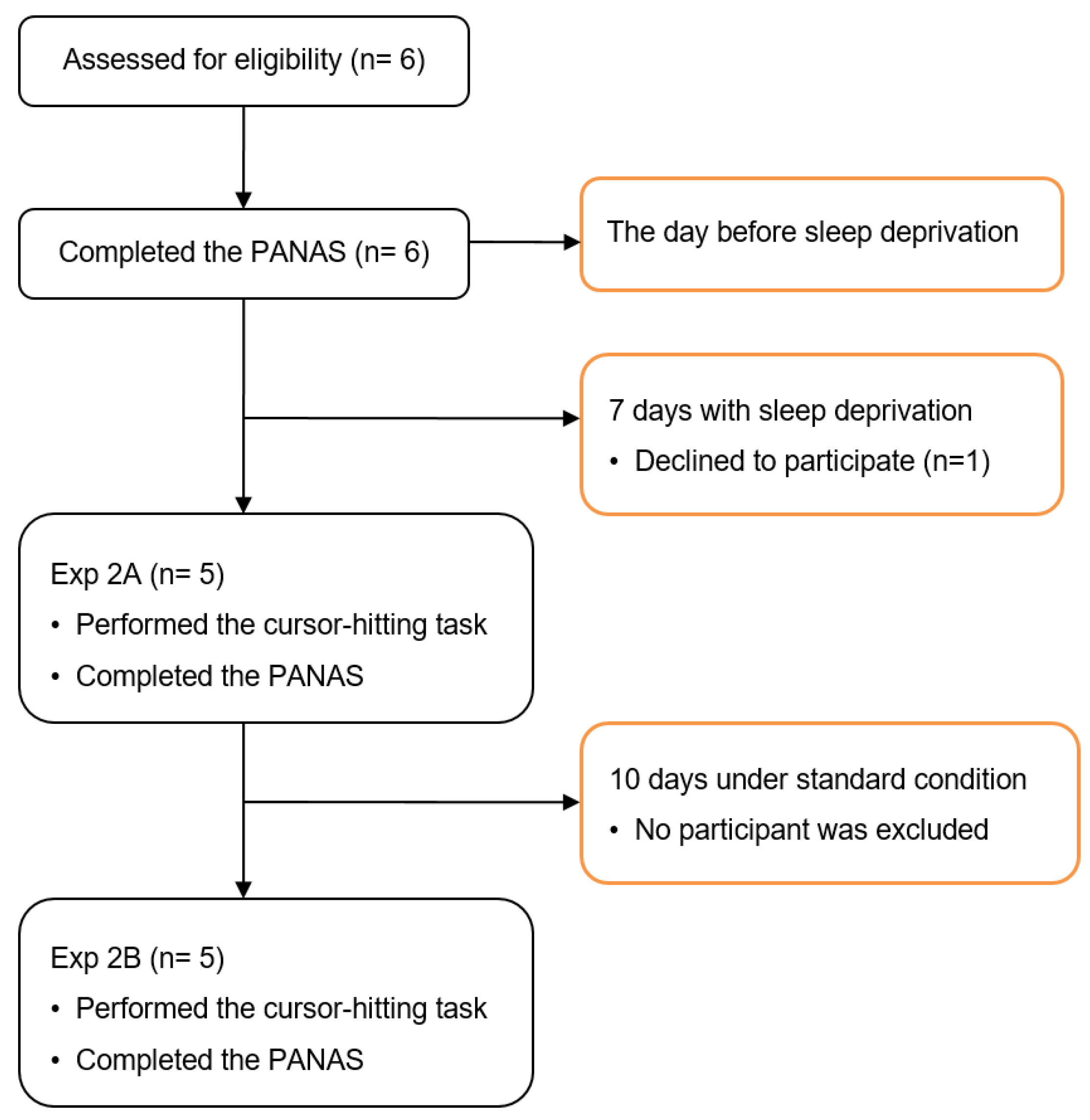
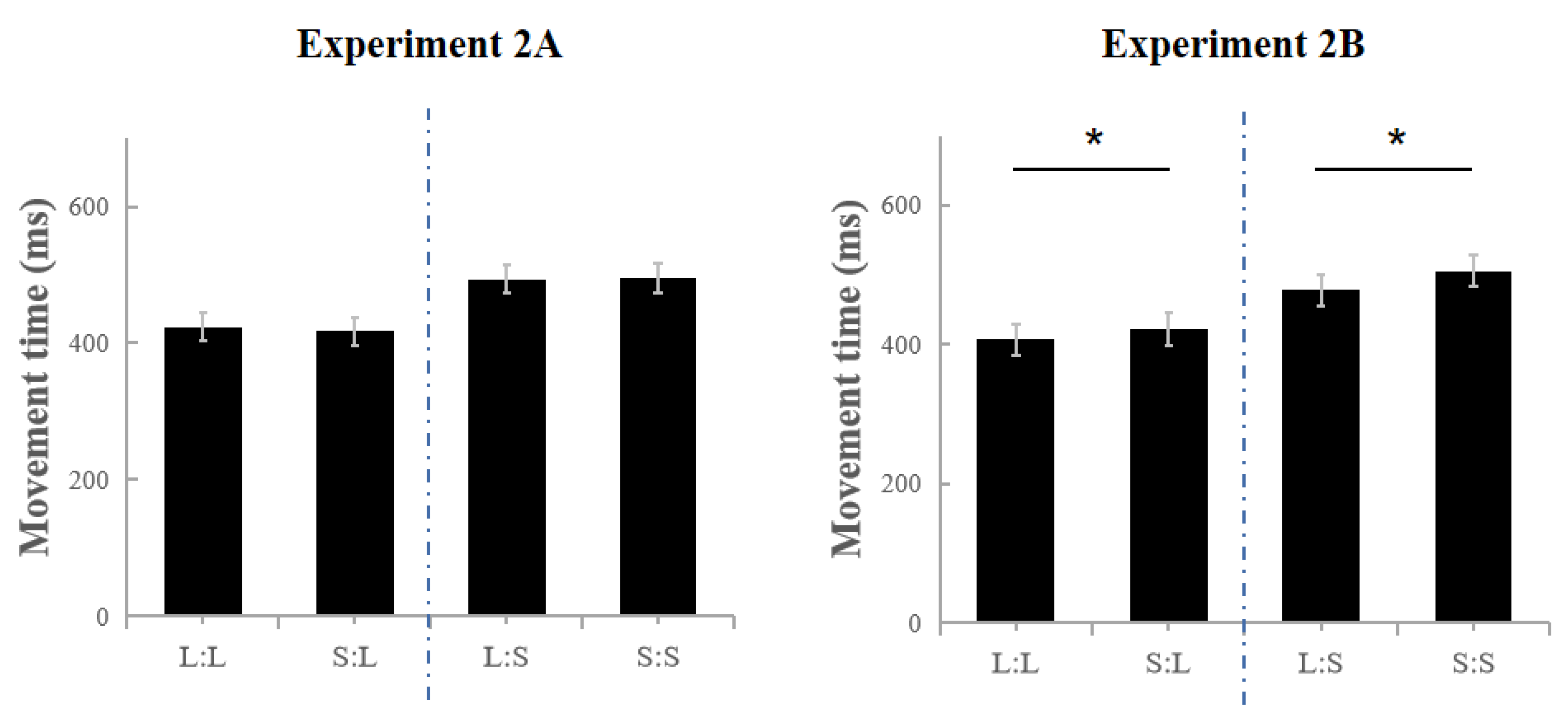
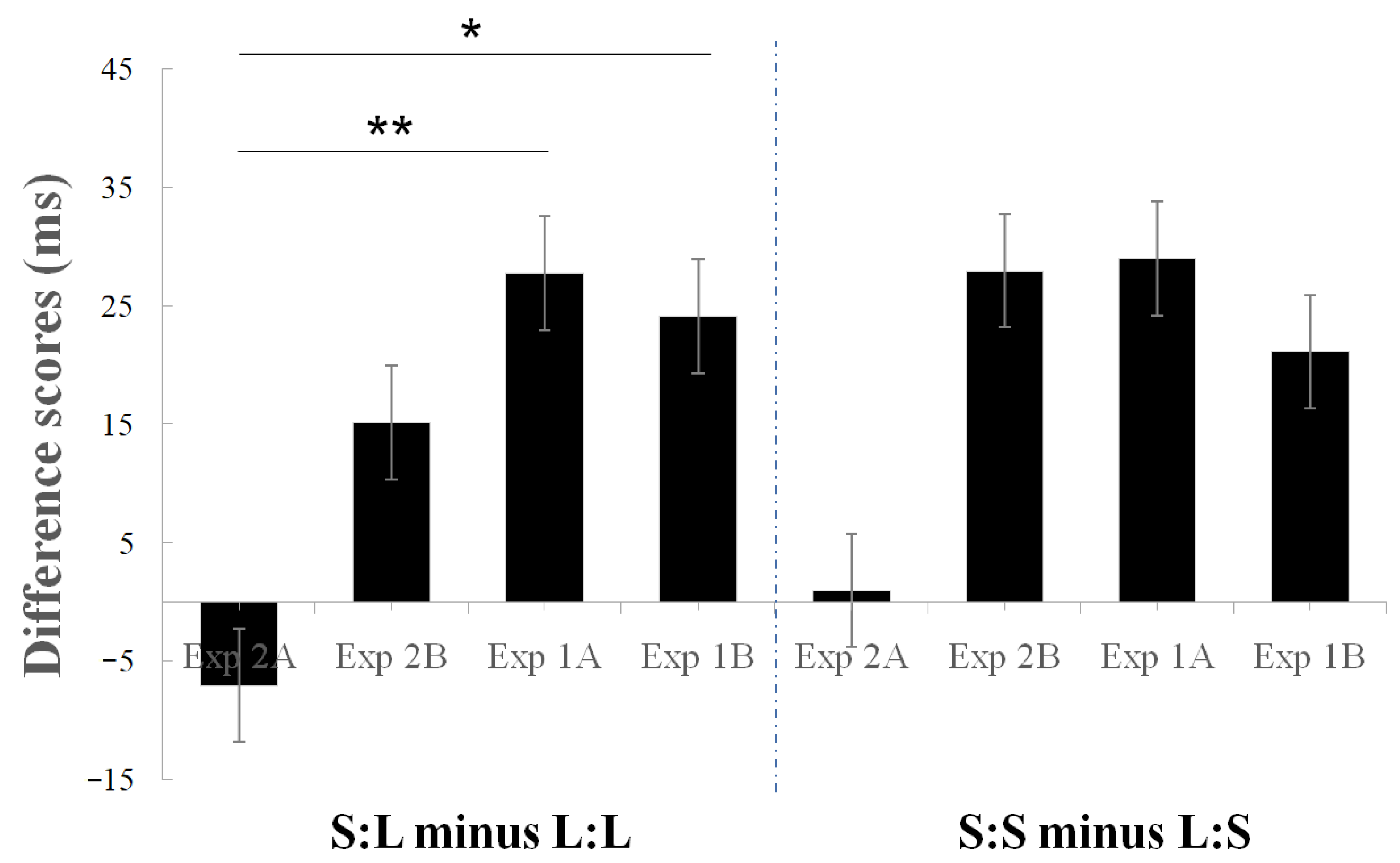
Publisher’s Note: MDPI stays neutral with regard to jurisdictional claims in published maps and institutional affiliations. |
© 2022 by the authors. Licensee MDPI, Basel, Switzerland. This article is an open access article distributed under the terms and conditions of the Creative Commons Attribution (CC BY) license (https://creativecommons.org/licenses/by/4.0/).
Share and Cite
Shen, B.; Tian, Z.; Li, J.; Sun, Y.; Xiao, Y.; Tang, R. Sleep Deprivation Influences Trial-to-Trial Transfer but Not Task Performance. J. Clin. Med. 2022, 11, 5513. https://doi.org/10.3390/jcm11195513
Shen B, Tian Z, Li J, Sun Y, Xiao Y, Tang R. Sleep Deprivation Influences Trial-to-Trial Transfer but Not Task Performance. Journal of Clinical Medicine. 2022; 11(19):5513. https://doi.org/10.3390/jcm11195513
Chicago/Turabian StyleShen, Bingyao, Zhiqiang Tian, Jiajia Li, Yu Sun, Yi Xiao, and Rixin Tang. 2022. "Sleep Deprivation Influences Trial-to-Trial Transfer but Not Task Performance" Journal of Clinical Medicine 11, no. 19: 5513. https://doi.org/10.3390/jcm11195513
APA StyleShen, B., Tian, Z., Li, J., Sun, Y., Xiao, Y., & Tang, R. (2022). Sleep Deprivation Influences Trial-to-Trial Transfer but Not Task Performance. Journal of Clinical Medicine, 11(19), 5513. https://doi.org/10.3390/jcm11195513




